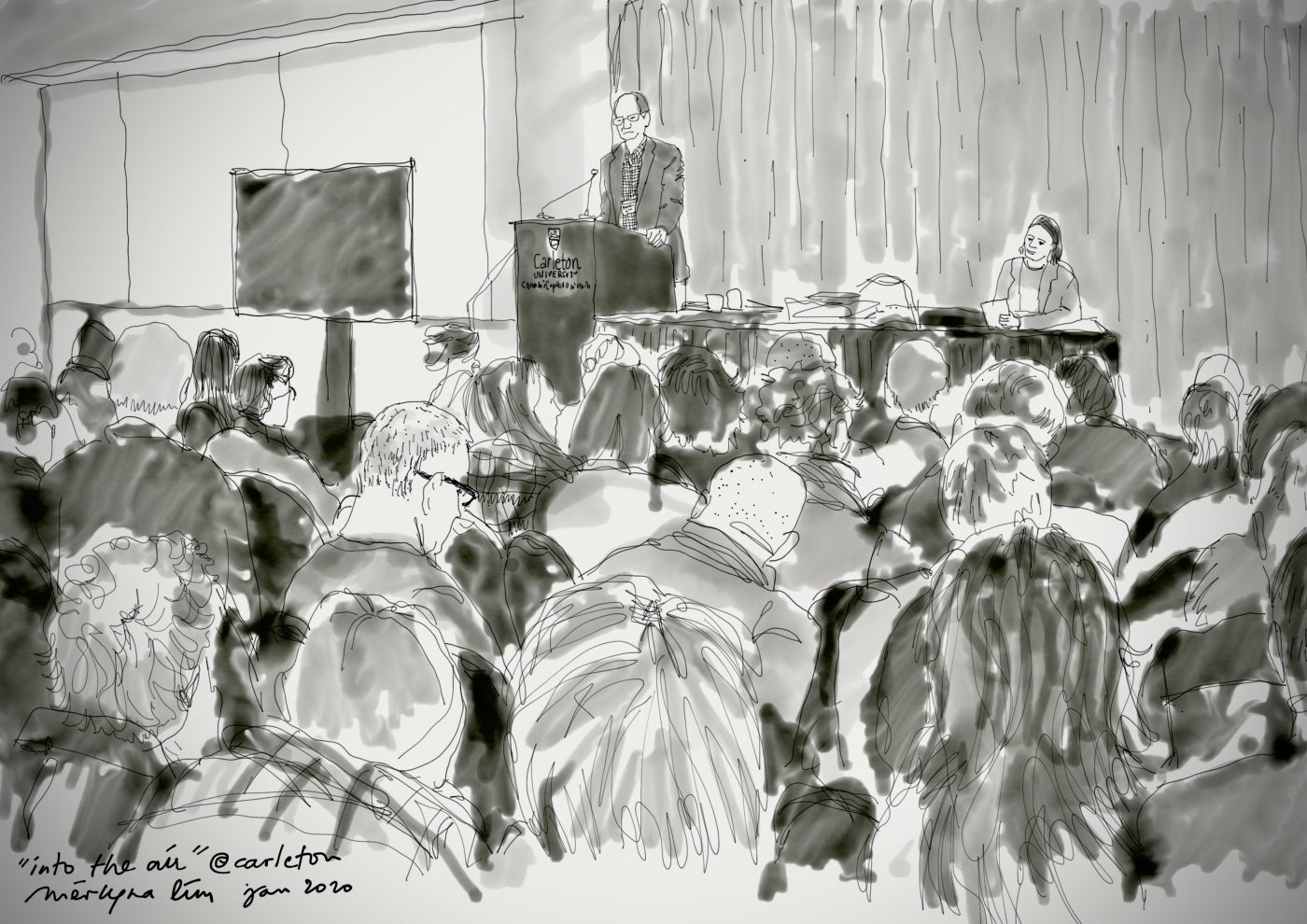Every year, some of the brightest minds in communication and media studies visit us to share their research and perspectives.
Attallah Lecture
The annual Attallah Lecture has covered everything from “Queer Gaming” (Jack Halberstam, 2014) to the “War on Mobile Phones” (Lilie Chouliaraki, 2019) . The event has become an integral part of the Communication and Media Studies program and continues to stimulate important discussions with our broader communities.
Into the Air Symposium

Into the Air used the 20th anniversary of John Durham Peters’s Speaking into the Air as a springboard for scholars from a variety of disciplines, institutions, and geographical locations to critically and collaboratively reflect on the last two decades of work across the unruly and “undisciplined” fields of communication and media theory.
The symposium was organized around several broad themes that are foundational to Speaking into the Air as it has been received across the Humanities and Social Sciences. These are: Body, Dialogue, Dissemination, History, Language, Politics, Religion, and Technology.
The Symposium was held January 16-17, 2020.
CoMS40 Symposium: Histories, Theories, Archives and Archaeologies
In 2018-19, as part of our CoMS40 celebration, we featured a series of special lectures — from colleagues, collaborators, faculty and alumni — that highlight our reputation as a centre of scholarly excellence and innovation in communication and media studies.
CoMS40 Keynote Address
Dr. Shannon Mattern, Professor of Media Studies at The New School, New York City, delivered Amending Care: An Archaeology of Maintenance at Carleton University on September 14, 2018. The lecture was the keynote of the Histories—Theories—Archives—Archaeologies Symposium that marked the 40th anniversary of Carleton’s Communication program. Dr. Mattern contributed to recent calls across a variety of disciplines to shift conversations about media and technology, which currently focus almost entirely on innovation, toward an emphasis on maintenance and repair. She argued, further, that scholarly and popular discourse should attend more seriously to the broad range of activities and histories that fall under the category of maintenance, such as women’s work, reproductive labour, information work, and practices of preservation, among others.